Description
Berry Extreme is a powerful assortment of lyophilized (freeze dried) berries.
Berries (in general) are low in calories and high in minerals, vitamins and other nutrients. Especially, berries are a great source of antioxidants, such as anthocyanins, ellagic acid, and resveratrol. In addition to protecting your cells, these plant compounds may reduce disease risk. Unlike vitamin supplements, berries contain all the intrinsic and associated factors of vitamins. For example, just 16 grams (4 teaspoons) of Berry Extreme provides 150% of the MDR for Vitamin C — but rather than being ascorbic acid component of Vitamin C only, that is found in vitamin supplements, the Vitamin C in Berry Extreme includes all 14 components of “real” Vitamin C, and is much more beneficial to health.
When water is removed from fresh foods without using heat (heat would damage the delicate food nutrients), the resulting food powder is much more powerful (gram for gram) than the original food — because it is more concentrated. That is why there is more nutrition from one bag of Berry Extreme than if you ate bushels of the 14 expensive, and often hard to find berries that are in Berry Extreme. 16 grams of Berry Extreme provides:
- 120% of the RDI of Manganese
- 100% of the RDI of Vitamin K
- 33% of the RDI of Copper
- 25% of the RDI of Folate
- as well as numerous other nutrients
No class of food has been more often associated with cardiovascular health than berries.
The Berries in Berry Extreme Include: ORAC values shown for each Berry (100 gram standard)
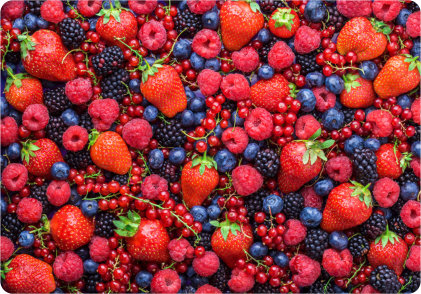
- Aronia - 470,000
- Acai - 102,700
- Sea Buckthorn - 70,000
- Bilberry - 61,400
- Maqui - 27,600
- Goji Berry - 13,500
- Lingonberries - 12,000
- Cranberry - 9,584
- Blueberry - 6,552
- Blackberry - 5,905
- Raspberry - 5,605
- Pomegranate - 4,479
- Strawberry 4,302
- Beets 1,776
More About Each Berry Type Included In Berry Extreme
Aronia Berry
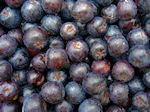
Aronia berries contain many times higher levels of antioxidants, polyphenols, and anthocyanins than cranberries, blueberries, grapes, and most other fruits. Studies have shown that the antioxidants in Aronia Berry and all antioxidants in general help reduce the risk for many types of diseases in humans and are valuable in delaying the aging process of cells. They are low in sugar, help digestion, help raise HDL cholesterol, improve vision and immune function and help normalize blood sugar.
Acai
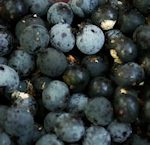
Acai berries have a deep purple skin and yellow flesh surrounding a large seed. They have an earthy taste that's often described as a cross between blackberries and unsweetened chocolate. Acai berries contain numerous vitamins, minerals and trace minerals, including chromium, zinc, iron, copper, manganese, magnesium, potassium and phosphorus. They're relatively high in fat, but their main benefit is from their antioxidant anthocyanins. Anthocyanins consumption has been strongly linked to oxidative stress protection. One study has found that regular consumption of anthocyanins can reduce the risk of heart attack by 32 percent in young and middle-aged women.
Sea Buckthorn Berries
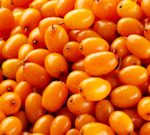
Sea buckthorn berries grown on the sea buckthorn plant (Hippophae rhamnoides), which is a small shrub that grows at high altitudes in the northwest Himalayan region. It is sometimes referred to as the holy fruit of the Himalayas. It is a popular remedy in Ayurvedic and traditional Chinese medicines, it may provide health benefits ranging from supporting your heart to protecting against diabetes, stomach ulcers and skin damage. It is rich in many nutrients, including potassium, calcium, magnesium, iron and phosphorus. They also contain good amounts of folate, biotin and vitamins B1, B2, B6, C and E. More than half of the fat found in sea buckthorn berries is mono- and polyunsaturated fat, which are two types of healthy fats.
Bilberry
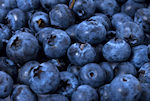
Bilberries are closely related to blueberries, are native to Europe and also known as huckleberry, or European blueberries. They are rich in antioxidants known as anthocyanins and polyphenols. Bilberries have been used for medicinal purposes for conditions ranging from eye conditions to diabetes. They are said to improve both day and night vision. Bilberry is said to strengthen the walls of blood vessels and is sometimes taken orally for varicose veins and hemorrhoids. Some evidence shows they are helpful with digestion and weight loss.
Maqui Berries
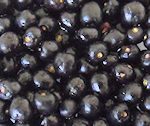
Maqui Berry is an exotic, dark-purple fruit that grows wild in South America. The berries have been used medicinally for thousands of years. Today, Maqui berry is marketed as a “super-fruit” due to its high antioxidant content and potential health benefits, including reduced inflammation, blood sugar control and heart health. Maqui berries are packed with up to three times more antioxidants than blackberries, blueberries, strawberries and raspberries. In a four-week clinical study, people who took 162 mg of a Maqui berry extract three times daily had significantly reduced blood measures of free radical damage, compared to the control group.
Goji Berries
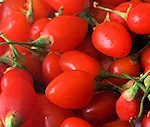
The Goji Berry is native to Asia, and people in Asia have been using this brightly colored fruit for more than 2,000 years as a medicinal herb and food supplement. Polysaccharides are a primary characteristic of the Goji berry. Goji berries also contain beta-carotene, which is responsible for the orange-red color pigment in Goji berries. Beta-carotene is vital for eye health, bone health, skin health, and cell development. The amount of beta-carotene in Goji berries is among the highest of all edible plants. Goji berries contain large amounts of Vitamins A and C. They have been shown to help improve immune function, help keep blood sugar in normal ranges and improve brain function. In traditional Chinese medicine, they are used to improve liver health.
Lingonberries
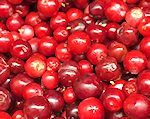
Lingonberries are small, red berries dubbed super-fruits due to their nutritional profile and antioxidant content. Though more research is needed, studies suggest that they may promote healthy gut bacteria, weight control, heart health, and blood sugar control — among other benefits. Lingonberries contain amazing phytochemicals that can do wonders for health.
Cranberry
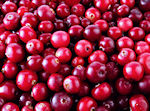
Cranberries are related to blueberries, bilberries, and lingonberries. Due to their very sharp and sour taste, cranberries are rarely eaten raw (however in GPS, they are still raw). Cranberries are rich in various healthy vitamins and plant compounds, some of which have been shown to aid the flow of urine through the kidneys. Cranberries are a rich source of several vitamins and minerals, especially vitamin C, which is essential for the maintenance of skin, muscles, and bone. It is also high in manganese which boosts cell growth, metabolism and the production of endogenous antioxidants. It is also high Vitamin E, Vitamin K and copper, which are often low in Western diets.
Blue Berries

Blueberries are low in calories, but high in nutrients. They help reduce DNA damage. The antioxidants in blue berries help cholesterol from becoming damaged. They protect aging neurons in the brain to help prevent memory loss. They help the urinary tract and help muscles to recover after strenuous exercise.
Black Berry
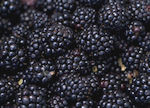
Black berry is high in Vitamin C, which is integral to collagen formation in bones, connective tissue, and blood vessels. They're also high in Vitamin K which helps minerals be directed go to the right places in the body, manganese which is helpful for collagen formation and for helping wounds heal. They boost brain health, digestive health, immune health and provide help for maintaining healthy weight. They are excellent for the skin and help pregnant mothers in reducing the risk of defects in babies.
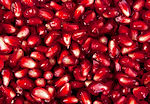
Pomegranates contain Punicalagins and Punicic Acid, which are extremely potent antioxidants found in pomegranate juice and peel. Pomegranate seeds have three times the antioxidant activity of red wine and green tea and are useful in protecting against inflammation of all types. They are also rich in dietary nitrates making them good for the heart. Pomegranates are high in Vitamin C, potassium, and Vitamin K.
Raspberries
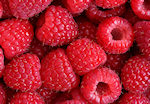
Red Raspberries contain strong antioxidants such as Vitamin C, quercetin and gallic acid that fight help fight inflammation and age-related decline. They are high in ellagic acid, a known preventer of cell mutation and repairer of cellular DNA, and have been shown to have anti-inflammatory properties. They are especially high in manganese which helps in the formation of endogenous antioxidants.
Beet Roots
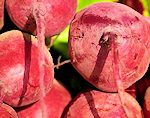
Beets are actually a vegetable. But, they add significant cardiovascular benefits to the berries due to the vegetable nitrates, minerals and folate. A primary good effect of Beet Roots is cardiovascular elasticity and energy, much of this due to the Fructans (a short-chain carb also found in garlic, leeks, artichokes, asparagus and onions) in Beets. Beets are also high in Boron which helps promote strong bones, muscles and a quick responding mind. Beets help improve muscle coordination and critical thinking and helps with detoxification of the body.
You Are What You Eat — Which is Why We Recommend Organic Beet Root Juice Powder
 Rishi Ternes, owner of New Earth Super Foods, left the study of medicine in Germany, came to the U.S. and turned his life over to the pursuit of nutrient dense food and seeking to understand the ability of food to transform health. He believes that “we are what we eat” and that “food should be our medicine”. Rishi owns a Super Food Cafe and Health Transformation Center in Arroyo Grande, California. He continues to search the world for foods that enable to the body to repair itself. As Rishi says, “the nutrients that your body needs are in the foods you aren’t eating.”
Rishi Ternes, owner of New Earth Super Foods, left the study of medicine in Germany, came to the U.S. and turned his life over to the pursuit of nutrient dense food and seeking to understand the ability of food to transform health. He believes that “we are what we eat” and that “food should be our medicine”. Rishi owns a Super Food Cafe and Health Transformation Center in Arroyo Grande, California. He continues to search the world for foods that enable to the body to repair itself. As Rishi says, “the nutrients that your body needs are in the foods you aren’t eating.”
Rishi seeks out farmers and food suppliers that are progressive, meaning they are adding minerals and trace minerals to their soils, farming organically and harvesting their foods at the peak of ripeness. Rishi then ensures that those foods are juiced and freeze dried immediately before nutrient loss.
Food is the way of health not vitamins!
Berry Extreme fits with the “first rule of health” which is that food should be our medicine. Berry Extreme also fits with our second rule of health, which is that food engenders health, not vitamins. The United States has among the worst health statistics of all industrialized nations, yet the people of the United States consume more vitamins that the rest of the world combined. That means that you will eventually find, as so many others have already found, that your health will never really start to improve until you give up on vitamins and turn to food. It's time to turn to food!
- Vitamins, IE nutrient isolates (often made in a laboratory), may look powerful and awesome on the label, but they don’t work as well in the human body as one would hope because they lack the many needed co-factors. Food comes with many needed co-factors nutrients.
- The lack of co-factors is the basic problem of vitamin supplements. Without those co-factors, they're NOT as useful to our cells. For instance, Vitamin C is not just ascorbic acid but rather it is: ascorbic acid and numerous co-factors that work in the cells like catalysts or tag teams to make chemical reactions occur. The many co-factors are present in foods, but are not in vitamin isolates. The result, therefore, of taking vitamins is that the body has to scavenge body tissues to obtain the needed co-factors, or wait until they are available or the body may simply discard the nutrients for which co-factors are not available. This is extra work and/or a waste of nutrients, and therefore, vitamin isolates, do far less to improve health than does food.

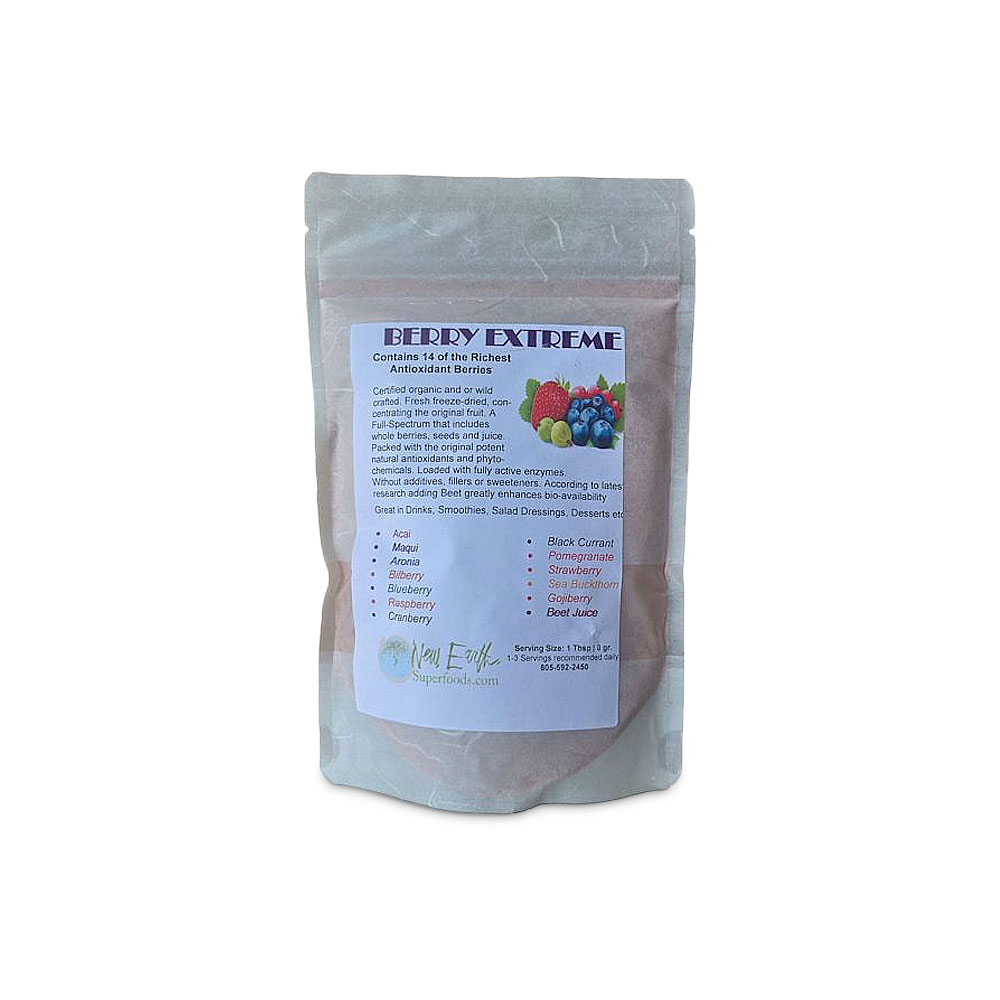
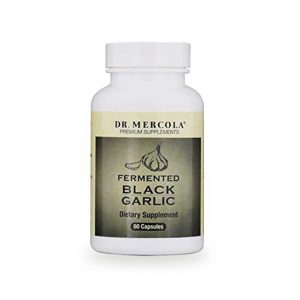
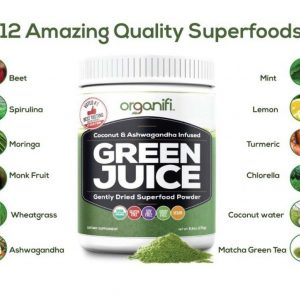
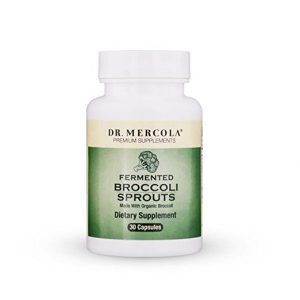
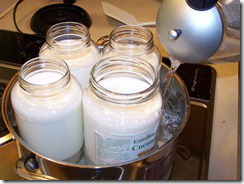

Reviews
There are no reviews yet.